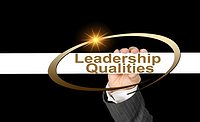Listening: 5 Steps for Smoother Interactions and Fewer Hiccups

Photo credit: Daria Kulkova / iStock / Getty Images Plus via Getty Images
In our fast-paced industry, the importance of good communication skills cannot be overstated. Taking a moment to reflect on our day-to-day experiences, we recognize how often our challenges and triumphs are intertwined with the quality of our communication.
While salespeople are typically trained in the art of listening for relationship building and sales success, it's crucial to extend this focus to all members of our organizations. Even in the age of digital workflows, verbal communication remains a cornerstone of our internal and external relationships. However, when it goes wrong, the consequences can be significant.
What's at Stake?
- Customer Service: Frustration and mistakes can arise when customers provide instructions, answers, or expectations that are ignored, missed, or forgotten.
- Internal Relationships: In leadership roles, failing to listen to our teams can damage relationships, erode company culture, and disengage the team.
- Execution of Projects and Services: Miscommunication leads to inefficiencies and hiccups in operations that can affect timelines, cause duplication of effort and degrade service deployment.
What can we do to improve listening, reduce the hiccups, and have better outcomes?
- Provide clearly defined and concise information and instructions to guide your teams effectively.
- Treat the skill of listening as a requirement for various positions within the organization. Include the attribute in your employee evaluations and give honest feedback.
- Make it a part of Employee Training. Using the techniques below, practice and develop the team’s listening skills and gain confidence when dealing with a wide variety of scenarios. This is an effective training principle of: Learn > Do > Collect Feedback > Repeat.
- Write it Down: Emphasize the importance of writing down important details during discussions, meetings, and when given instructions. Encourage the use of notepads or digital equivalents. This would sound like, “Let me review what needs to be done on the job … grab a notepad.”
- Read Back: Establish the practice of repeating instructions or key information back to the speaker to ensure clarity. This simple step can prevent misunderstandings and errors. Sounds like, “Great! Thank you, Joe. Could you please read back the plan so we can make sure we are on the same page and none of the details get missed?”
- Accountability: When encountering situations where instructions are not followed, inquire whether the information was documented and if the team member read it back. This applies to both internal and customer communications.
- Lead by Example: Incorporate these techniques yourself and demonstrate active listening in your day-to-day interactions and coach team members to do the same. This will reinforce these important behaviors and impart them into your culture.
Finally, I offer some simple steps to help us, and our teams listen better:
- Choose to Listen: Recognize the objective of each communication and deliberately focus on the interaction. Examples of objectives in our operations may be:
- A customer’s instructions, expectations, and questions that need follow-up.
- A supervisor reviewing a protocol or scope of work.
- A direct report communicating a difficult situation, goals for the day/week, or ideas to help the company.
- Maintain Eye Contact: This helps the listener focus and the speaker feel engaged and respected in the communication.
- Body Language: Pay attention and listen to signals in body language.
- Minimize Distractions: no multi-tasking, put down your phone, turn and face the speaker.
- Write It Down: Actively engage with information by taking notes during customer interactions, team discussions, and meetings.
- Clarify: If anything is unclear, ask simple and clear follow-up questions at the appropriate time in the conversation.
- Read Back and Confirm: Repeat key information to the speaker to ensure accuracy and alignment. This not only helps us capture everything as a listener, it contributes to a positive relationship with the other member(s) of the interaction.
We can enhance our listening skills, strengthen team communication, improve customer service and ultimately contribute to the success of our organizations by developing the skill of listening. It is not just for the sales team. May better listening bring you and your teams much Restoring Success.
Looking for a reprint of this article?
From high-res PDFs to custom plaques, order your copy today!








